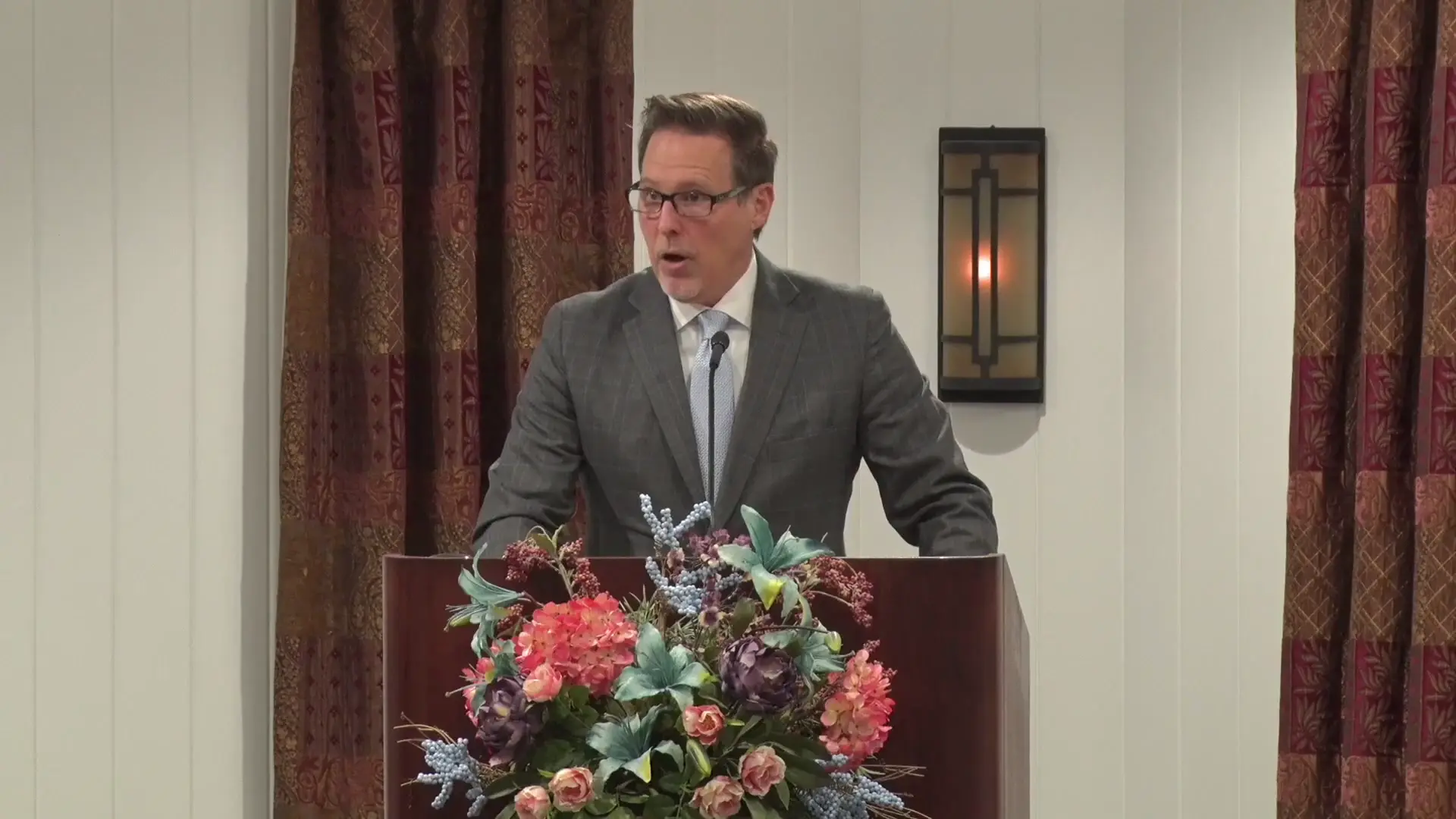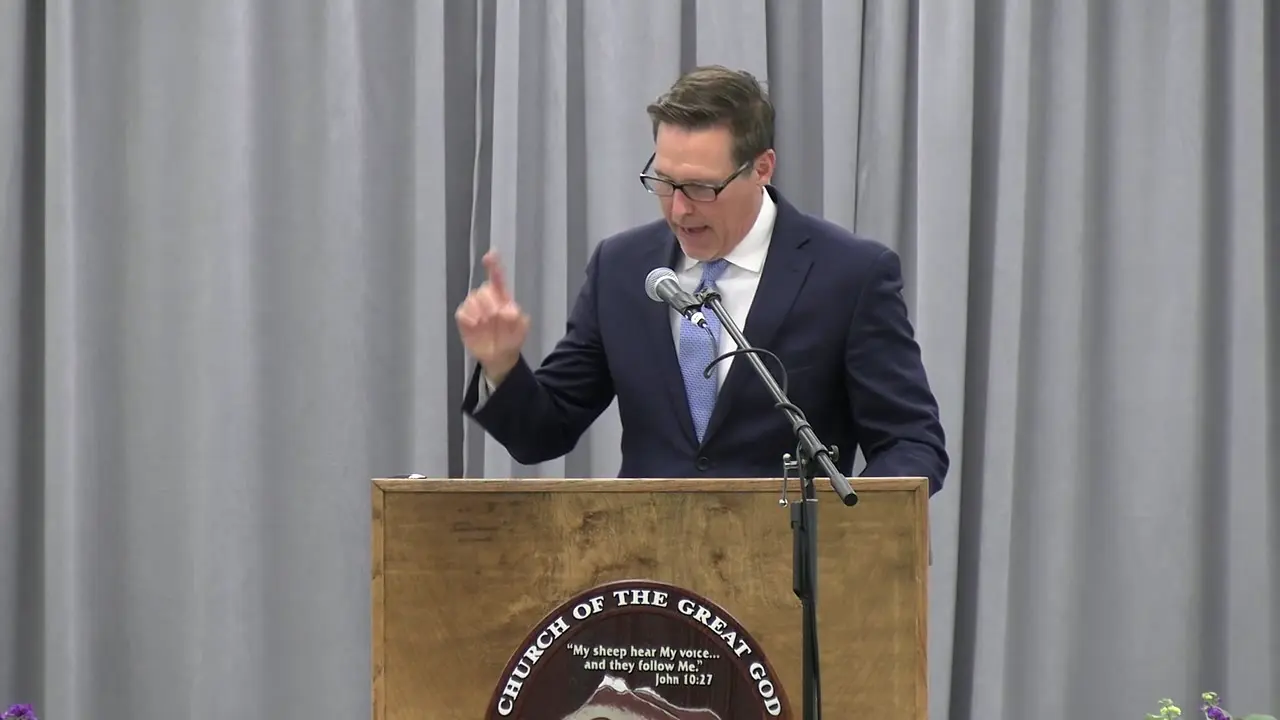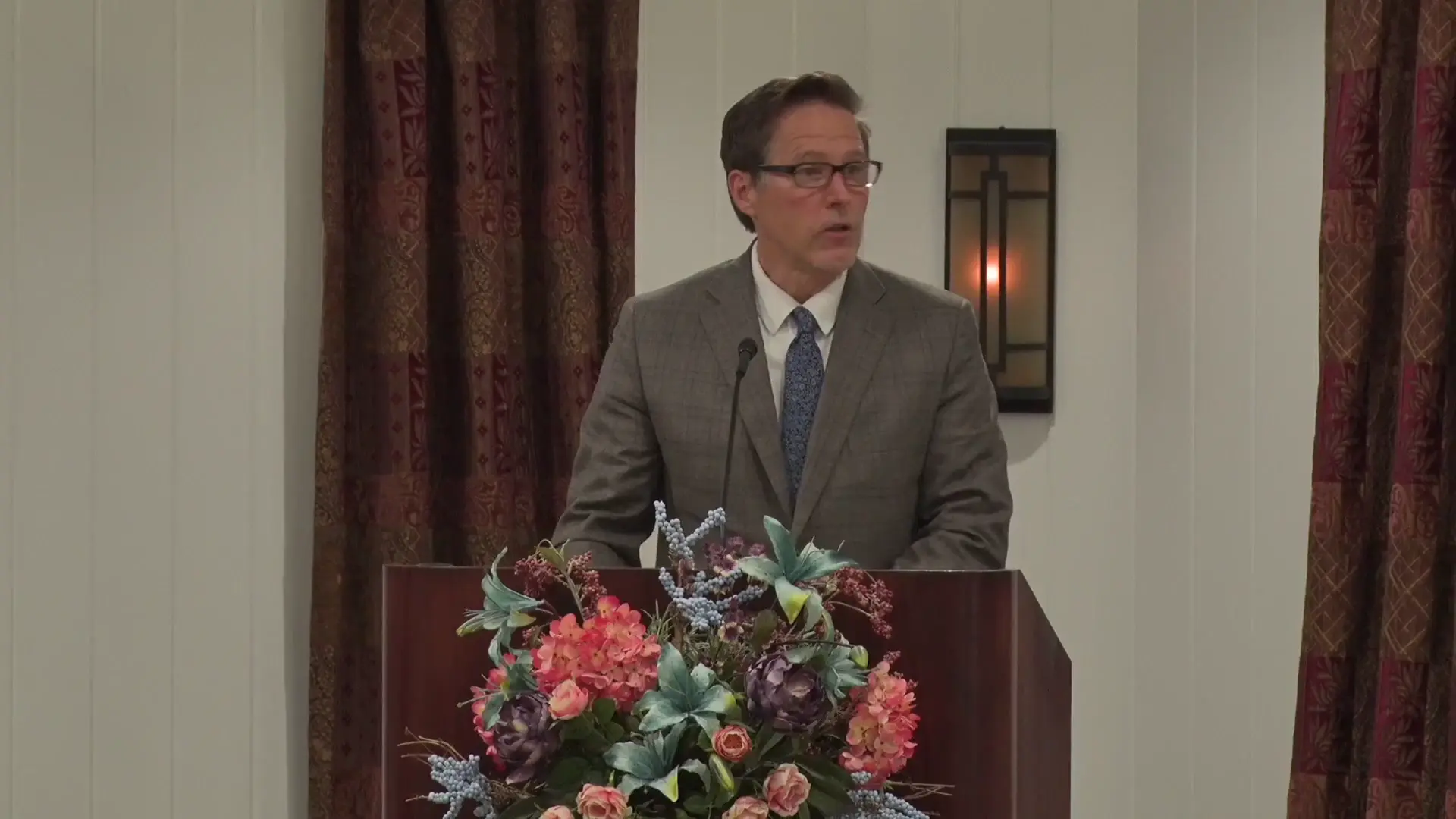Filter by Categories
Serving Others
Sermonette by James BeaubelleNeither the toxic worldview of evolution nor that espoused by mainstream Christendom fails to answer why we exist. We have a mandate to serve both God and man.
Service: A Key to Spiritual Success
Article by William R. GrayServanthood is a vital key to success in our spiritual lives and in all our activities, responsibilities, and relationships. It is a major part of our Christian walk. With Christ's perfect example as our standard, we can be confident that if God opens a door for us to serve another, we will succeed in fulfilling His will. We do not need to worry about lacking skills, for the Father will supply our deficiencies through the Holy Spirit, helping in our weaknesses. Our role in serving is to maintain an attitude of availability and to be attentive enough to recognize the call to serve when it comes. We must not draw back out of fear of inadequacy or past failures, but trust God to use us as His vessel. As we practice serving, we grow accustomed to God working through us, gaining confidence and learning to set aside our human nature. Knowing that it is God who accomplishes the work, we can humbly direct all praise and credit to Him. We cannot dictate the areas in which we will serve, but must accept any task God assigns, doing it to the best of our abilities, even if it does not match our expectations. No matter who receives our service or how they respond, we must remember that it is truly God we serve. Seeking approval from others indicates we are serving for the wrong reasons and the wrong person. We must serve God through commitment, not based on emotions or a need for recognition. Service should carry the same level of dedication as other commitments we make to God, offered sincerely from the heart, as to the Lord, and not to men.
Service with a Smile
Sermonette by Bill OnisickJesus Christ expects His followers to serve while expecting nothing in return. Whoever wants to become great must fill the role of an unpretentious servant.

Footwashing: An Attitude of Service and Forgiveness
Sermon by Ted E. BowlingIn John 13, when our Savior washed His disciples' feet, He taught them that He was willing to accept the task designated to the lowest of the servants.
Humble Service
Sermonette by Ted E. BowlingJesus modeled the practice of foot-washing to demonstrate the need to be submissive to one another, to serve one another, including those who betray.

Sacrificial Service Within the Body
Feast of Tabernacles Sermon by Mark SchindlerWe have all been placed into the Body of Christ with unique gifts God has graciously given to each of us for a pleasing burnt offering service.
Eternal Servant Leadership
Sermon by Mark SchindlerOur responsibility should be to learn to serve rather than to emulate the pompous gentile leaders who love to domineer over their subjects.
Life Is Service (Part Two)
Sermon by Richard T. RitenbaughA culture of slavery pervaded life in the early Christian church, forcing Paul to pen instructions accommodating this practice in the context of love.
Do Unto Others and Reap What We Sow
Sermon by John W. Ritenbaugh (1932-2023)Reaping good fruit does not happen immediately. If we feel we are not reaping, we must consider that we might be reaping some negative things we have sown.

Another Look at Footwashing
Article by Bill KeeseeMany consider footwashing at Passover to be a mere ritual to remind us to serve one another. But it teaches another godly attribute: forgiveness.
Precious Human Treasures
Article by StaffWe live in a youth-oriented culture, yet the elderly have a great deal to offer — if we will only pay attention and not push them to the margins of society.
The Golden Rule (Part Two)
CGG Weekly by John ReissShowing kindness within friendships will make them all the stronger. Kindness reduces friction; it is the oil that allows our friendships to run their best.
Lydia
Sermonette by Ted E. BowlingCombining her intense work ethic and her faithfulness to Almighty God, Lydia could serve as the exemplification of the Proverbs 31 woman.
Altruism
CGG Weekly by John ReissGod's way of giving is true altruism, and while we will never attain to such a perfect standard, He exhorts us to develop this characteristic.
Parable of the Talents (Part One)
Bible Study by Martin G. CollinsWhile the Parable of the Ten Virgins highlights preparation for Christ's return, the Parable of the Talents portrays Christians engaged in profitable activity.
The Ultimate Gift
Feast of Tabernacles Sermon by Mark SchindlerPaul reveals God's plan to save all Israel (Romans 11:25-36); the ultimate gift to His saints is the ability to help in the reconciliation process.
Sand Ramblers
Sermonette by James BeaubelleGod is actively involved in the lives of His people. The command to love our God with all our hearts and our neighbors as ourselves cannot be carried out passively.
John (Part Twenty-One)
Sermon/Bible Study by John W. RitenbaughThe humble attitude exemplified by Jesus in footwashing shows the mind of God. God expects us to follow Christ's example of loving others, flaws and all.
What Type of Leader Are You?
Sermonette by Ted E. BowlingJesus Christ did not teach the pyramid model of leadership, where successive levels of leaders provide direction to those in the lesser ranks. He served.
Sugar Cookie
Sermonette by Bill OnisickNavy Seal training has a humbling 'sugar cookie' exercise in which trainees are arbitrarily forced to endure excruciating discomfort and humiliation.
Church Unity Despite the Spirit of the World
Sermon by Martin G. CollinsThe unity of God's church does not derive from organizational expertise, the conformity of ecumenism, or the tolerance for evil, but from the family model.
Why Do You Feel Entitled?
Sermon by Kim MyersThe entitlement attitude has crept into God's church, with people seemingly feeling they should be served instead of eagerly serving others.

The Bond of Perfection: Sacrifice
Sermon by Bill OnisickSacrifice is the central theme of God's plan, not only the foundation of salvation, but also a means by which we are transformed into God's image.
What Has Happened to Deference?
CGG Weekly by John W. RitenbaughDeference is a foundational virtue. It reveals one's humility—that he is thoughtfully aware of others and seeking to serve them even in insignificant ways.
Back to Basics
Sermon by Richard T. RitenbaughIncreasing knowledge without the capacity to process it leads to insanity. To combat information overload, we must get back to the basics of Christianity.

The One Thing
Feast of Tabernacles Sermon by Bill OnisickSacrifice is the foundational principle for salvation and spiritual growth, as exemplified by Christ's preordained sacrifice before the world's creation.
Fearing God
Feast of Tabernacles Sermon by Kim MyersIf we fear our boss, college professor, employer, or spouse more than God, we are guilty of idolatry, putting human figures in the place of God.
Faithful Stephen
Sermon by Martin G. CollinsChrist does not want His staff to exercise Gentile patterns of tyrannical, top-down leadership, but to humbly serve people without striving for greatness.
Don't Stand Still!
Sermon by John W. RitenbaughThe best way to conquer evil is to do righteousness, serving God and mankind. Sins of omission are every bit as devastating as sins of commission.

Am I My Brother's Keeper?
Sermon by Bill OnisickBelievers are crafted to be the caretakers of all that belongs to God, accountable for how we serve, nurturing both His creation and His people.
Christian Heroes
Sermonette by John ReissWhile it is inspiring to observe the acts of heroism performed by Medal of Honor recipients, it is far more inspiring to recognize everyday heroes living among us.
Go Forward
Sermon by Mark SchindlerAre we ready to sacrifice as was Moses, realizing that our precious calling is far more than the imaginary quest of Don Quixote?
God's Perseverance With His Saints (Part Three)
Sermon by Martin G. CollinsThe unity Jesus appeals for with His disciples is not organizational unity, but unity within the divine nature, exampled in the unity between He and the Father.
"If I Have Not Charity"
Sermon by Richard T. RitenbaughChristianity has both an inward aspect (building godly character or becoming sanctified) and an outward aspect (doing practical good works).
Make This the Best Feast Yet
Sermonette by Hunter D. SwansonWe need to strive to have the 'best Feast ever' attitude as we approach the Feast. The quality of the Feast increases as we serve others.
The Widow and the Fatherless (Part Three)
CGG Weekly by Mike FordGod fills the first 15 verses of Isaiah 1 with a laundry list of sins, but He provides only two direct, uncomplicated verses on how to correct the problems.
It Takes a Church
Sermon by Richard T. RitenbaughAs Christians, we need to form warm, productive, quality relationships with our brethren, actively ministering to the needs of one another.
The Sacrifices of Leviticus (Part 4)
Sermon by John W. RitenbaughThe meal offering represents the second Great Commandment, love toward fellow man. Our service to others requires much grinding self-sacrifice and surrender.
These Things We Know
Sermon by Richard T. RitenbaughThe writings of John contain nine categories of "we know" assertions. Fully knowing consists of developing a deep intense relationship with God.
By This Shall All Men Know You
Sermon by John O. ReidA native practice involves leaving a young man on a remote island with only a bow and arrows until he learns to become a man, and God does something similar.

Holy Days: Passover
Bible Study by Earl L. HennPassover may be the most important festival ordained by God. Not only does it memorialize Christ's death, it also symbolizes our redemption and the covenant.
God Expects a Return on His Investment (Part Two)
Sermon by David F. MaasGod's promises to give us the desires of our hearts, His Holy Spirit, wisdom, and spiritual gifts to edify the Body all come with strings attached.
Love Thy Neighbor (Part 1)
Sermon by John W. Ritenbaugh (1932-2023)Jesus set the bar very high when it comes to love. We no longer live for ourselves, but to Christ, who commands us to love everyone, including our enemies.
The Sacrifices of Leviticus (Part 5)
Sermon by John W. RitenbaughThe meal offering represents the intense self-sacrifice required in service to man. Our service to man must be done for God's sake rather than man's appreciation.
Strategies for Interfacing with Babylon without Becoming Assimilated (Part Seven)
Sermon by David F. MaasTrue peacemaking means emulating Christ, which that involves promoting justice and righteousness, not merely avoiding conflict or appeasing by compromising.
We Are Part of Something Special
Sermonette by Ted E. BowlingAs we mature, our rough edges become smoothed, and we become thankful for the bond between us, looking for ways to edify one another.
The Priesthood of God (Part Six)
Sermon by John W. Ritenbaugh (1932-2023)The priestly garments represent the holy character of God. Clothing is used as a badge of one's office and symbolizes what our character is like inwardly.
Four Views of Christ (Part 4)
Sermon by John W. RitenbaughJesus sets a pattern for us by serving without thought of authority, power, position, status, fame, or gain, but as a patient, enduring, faithful servant.
Knowing Christ (Part 3)
Sermon by John W. RitenbaughIn taking undue attention off the self, sacrifice (as an act and as a way of life) creates peace, prosperity, cooperation, and most of all, character.